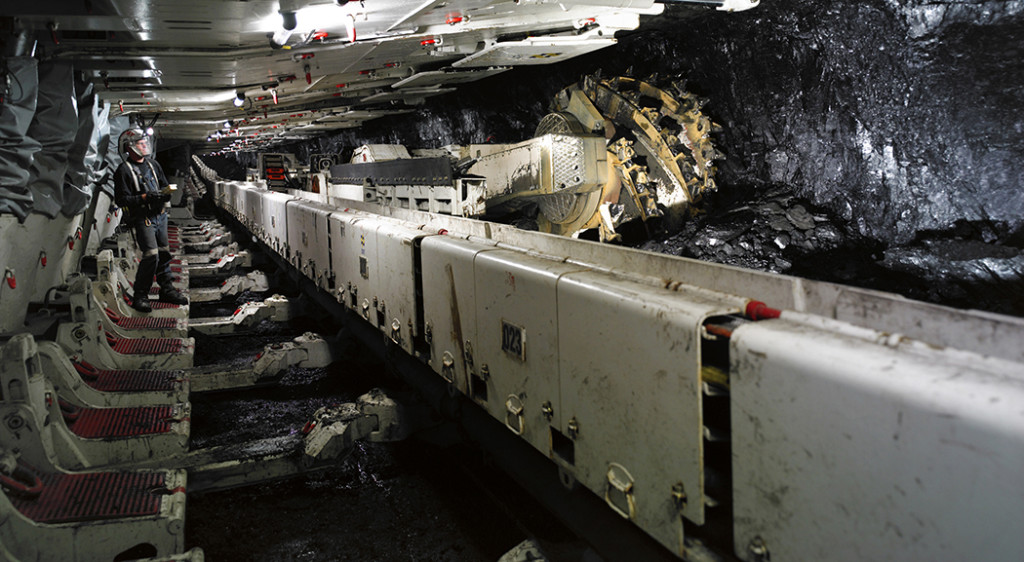Hydraulic fracturing, or “fracking,” is the most anticipated energy issue of the 2015 Colorado legislative session, and for good reason. It was the issue of 2014, as Congressman Jared Polis held the state’s economy hostage with dangerous anti-fracking ballot measures.
To stave off an electoral disaster, Governor John Hickenlooper negotiated a tenuous truce that included an oil and gas “task force” headed by Polis-approved, anti-fracking activist Gwen Lachelt. The 21-member commission is charged with crafting additional regulations in a state that already has some of the toughest oil and gas regulations in the country.
With Republicans in control of the Colorado Senate for the first time in a decade, the task force probably will enjoy as much success as the ill-fated League of Nations.
![]() What should concern Coloradans is an issue they’ve probably never heard of: A U.S. Environmental Protection Agency (EPA) power grab called the “Clean Power Plan” (CPP), or as critics have dubbed it – “ObamaAir.” The plan is intended to greatly restrict CO2 emissions from electricity generation by 2030.
What should concern Coloradans is an issue they’ve probably never heard of: A U.S. Environmental Protection Agency (EPA) power grab called the “Clean Power Plan” (CPP), or as critics have dubbed it – “ObamaAir.” The plan is intended to greatly restrict CO2 emissions from electricity generation by 2030.
If finalized, the rule would constitute an unprecedented usurpation of state power by the EPA that would fundamentally overhaul the electric industry. Congress never approved such a gross expansion of the regulatory state, and President Obama never vetted this power grab with voters.
Oversight of electricity markets has been the exclusive preserve of the states since the New Deal. The 1935 Federal Power Act limits the reach of federal energy regulators to “only to those matters, which are not subject to regulation by the States.” The CPP would change this forever by placing Colorado’s and every other state’s energy policy under the EPA’s authority.
It won’t be cheap.
The U.S. Chamber of Commerce estimates that the CPP will lower U.S. Gross Domestic Product (GDP) by $51 billion on average every year through 2030. It will also result in 224,000 fewer U.S. jobs on average every year through 2030 and lower total disposable income for U.S. households by $586 billion through 2030.
The cost to Colorado is also significant. As reported in an earlier column, Colorado gets no credit for pursuing aggressive energy policy in the past under the guise of “getting ahead of the EPA.”
Energy Ventures Analysis reports that the new plan will cost the average Colorado residential electricity and gas customer an additional $613 per year by 2020, while commercial users will see a 52 percent rate increase.
With the increased expense will come significant job loss. Many of these high-paying jobs, along with their pensions and health care benefits, won’t be replaced.

It’s unlikely a single coal-fired power plant in Colorado will survive. Power sources will change dramatically in ways that will threaten grid reliability. The rapid retirement of a stable base-load energy source such as coal will compromise the state’s ability to deliver reliable power to consumers, negatively impacting the daily life of every Coloradan.
Another concern is the EPA’s proposed timeline for compliance. It is completely unrealistic to expect our state regulators to devise a complex plan that needs legislative approval by June 2016. This type of wholesale reorganization of our state’s power grid requires thoughtful analysis of both the economic and reliability impacts first. Anything less is irresponsible.
If Colorado proceeds in implementing the proposed new rules, it will likely do it alone. A review of other Mountain West states’ CPP comments reveal more than just heightened concern. State agencies from Arizona to Montana have urged the EPA to withdraw the rules all together because they are fundamentally flawed, usurp state authority, require a wholesale institutional reorganization of state agencies, and threaten grid reliability—all within a timeline that is completely unrealistic.
Furthermore, the EPA does not have the authority to enforce these rules without approval from the Colorado General Assembly because implementing the rules would require a wholesale institutional reorganization of state agencies.
Some conservative states are simply choosing not to comply, but doing so comes with significant risks. As the Washington Examiner reported, “Under the Clean Air Act, the agency could install its own plan for states, withdraw highway funding or make it almost impossible to expand manufacturing, factories and other big polluting facilities by restricting permits.”
Colorado’s own Ray Gifford, former PUC chair and now a partner with the Denver law firm Wilkinson Barker Knauer LLP, correctly predicted that there will be a showdown.
He told the Examiner, “You’re looking at a federal collision between the EPA and the states. And the question is more a political one than a legal one. Does the EPA have the legal authority and the political will to, in essence, take over the electricity generation in a lot of states?”
What should Colorado do? The State Legislature must pass legislation that asserts itself as the authority over Colorado’s electric grid. Also the General Assembly must demand thorough economic and reliability analysis before it approves any plan to comply with the EPA regulations.
Fracking is the most highly anticipated topic of 2015, and it deserves serious consideration. But the EPA’s power grab is the most dangerous threat to our economy and our state sovereignty—and the one for which we should be preparing.
Amy Oliver Cooke is the Executive Vice President and Director of the Energy Policy Center for the Independence Institute. William Yeatman is the Competitive Enterprise Institute’s senior fellow specializing in energy policy and global warming.


